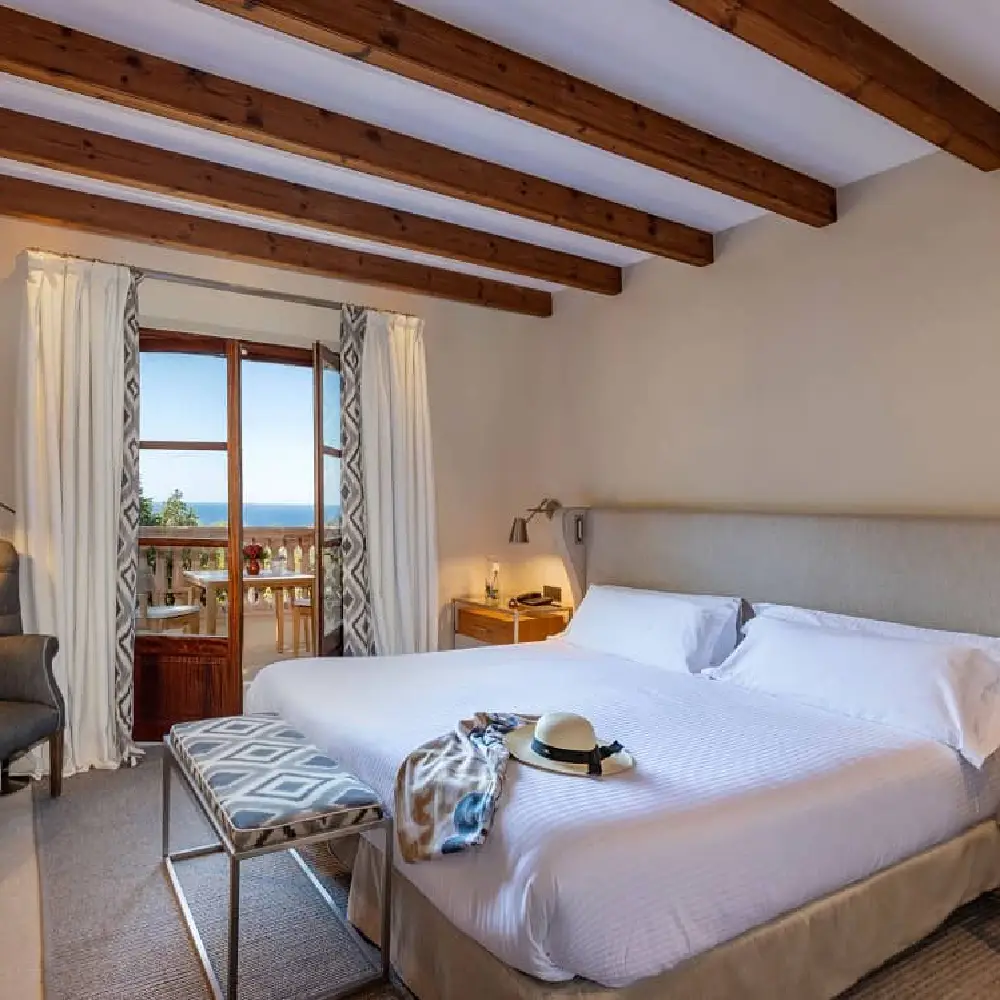OK, so you have decided to realize your dream and open your own hotel business. You have thought out an amazing concept delivering unparalleled guest service. The next step would be to write a hotel business plan. It’s like a road map to the opening. However, as a seasoned hotel revenue management consulting and hotel management company, we have seen that this is where most entrepreneurs get stuck.
Why? Many do not have the time and don’t know what to write or how to do the financials. But until you finish your business plan, you will not be able to get the financing either. So you end up with ideas sitting in your head not realizing your dream.
Really it is not that difficult to make a good hotel business plan. It is merely a structured summary of your idea. Most people try to include everything about their hotel concept in the plan. This leads to an indigestible super novel-like bookwork, aka a mess.
The key is, knowing what to include, and what not to include in your hotel business plan. Create a clear road map for success. Excite investors rather than bore them to death like most business plans full of redundant information do. And you need to lead readers down the exact path you want.
One of the main challenges for example is that after reading the first page most businesses often don’t fully understand what the hotel is all about. For investors and lenders, it is crucial they can quickly comprehend your plan, without reading the whole document.
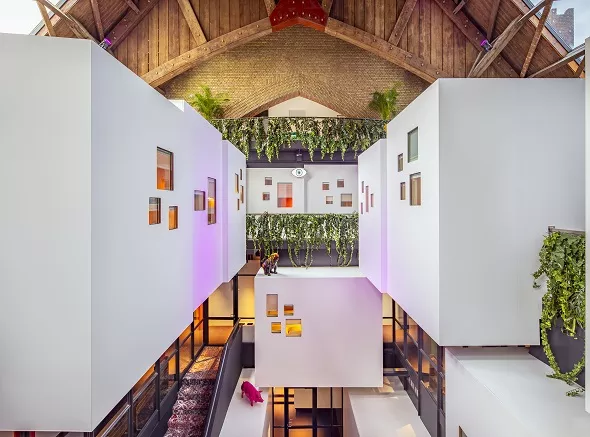
Hotels 101: The Basics of Business Planning
We have put together a hotel business plan template to help you on your way. Check out our approach based on 10 critical points, being:
- Executive Summary
- Company Analysis
- Industry Analysis
- Customer Analysis
- Competitive Analysis
- Strategic Plan
- Operations Plan
- Management Team
- Financial Plan
- Key Milestones
- Appendix
Steps of your Hotel Business Plan
Let’s dive into the step-by-step checklist of what your hotel business plan should look like.
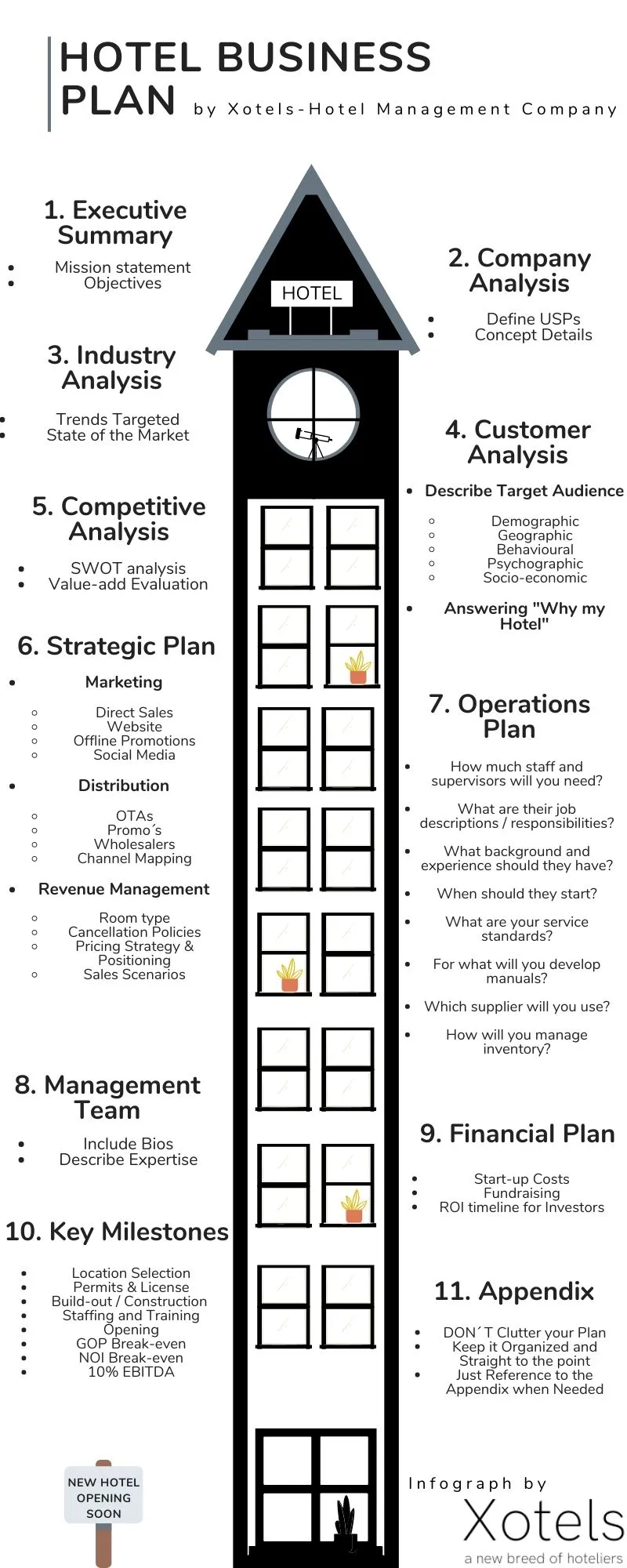
Infographic by Xotels
1. Executive Summary
This first part should consist of two main parts, being:
- Mission Statement (Introduction): a 1 line company description only the essence of your hotel (not 2 lines or a paragraph). It explains why you are in business or which huge need you are solving, that currently is not being met. For example in the case of Qbic Hotels “Moving modular hotels into under-utilized real-estate to reduce build-out cost and time.”
- Objectives: What do you hope to accomplish (i.e. “Reach an annual occupancy of 90%”).
2. Company Analysis
More detailed information on the USPs (unique selling points) of your hotel concept.
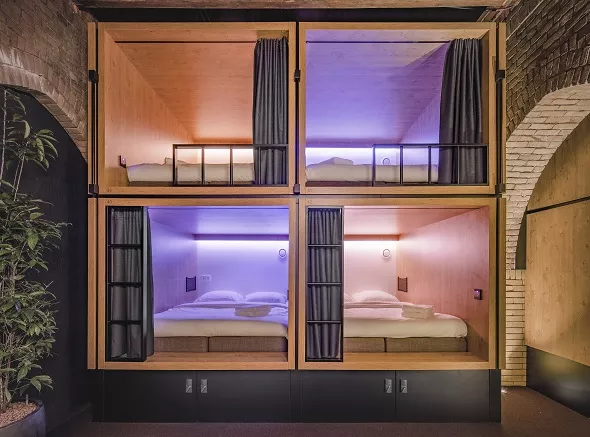
3. Industry Analysis
Information on the current industry trends and the current state of the market and how this will impact your hotel. This is needed as investors want to be sure you really understand the hotel industry. This acts as the foundation on which decisions such as trends and developments to follow will be based.
4. Customer Analysis
In-depth information on your target market, including geographic, demographic, socioeconomic, psychographic, and behavioural segmentation details. It can also help you to keep up to date with the latest hotel marketing trends to understand which are the types of guests who will be staying at your hotel. Explain which features will be meeting the needs and wants of these main segments when thinking of:
- Location
- Amenities
- Services.
Basically, how will consumers answer this question ‘Why my hotel?’
Aim to break it up to the point value can be easily communicated (do not make it too overcomplicated). Think of the following examples:
- Psychographics: interests, lifestyles, personality, values, opinions, and attitudes
- Behavioural segmentation: purchasing behaviour, level of engagement, customer loyalty
- Demographics: gender, age, marital status and education
- Geographics: location (country, state, region, city)
- Socio-economics
Any of the above examples of hotel segmentation can, if described well, be of great value to your business plan. An example of this could be a hotel located in a beach town, where you should be able to describe how demographics and psychographics differ from summer to winter time. Especially, since this example is typically known for lower demand in winter which you could be compensating for with the right hotel marketing strategies on hand.
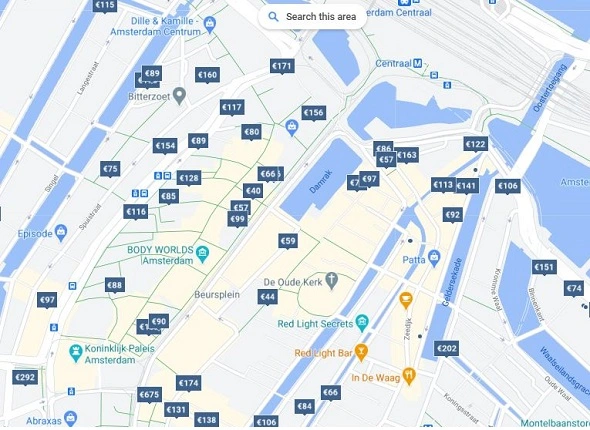
5. Competitive Analysis
A study of your local competition or global concept competitors, with each of their strengths, weaknesses, occupancy rates and market share (SWOT analysis). And don’t forget the most important part; what differentiates you from them. What makes you stand out?
Ask yourself: “can I add value to a specific area”, especially when it comes to hotel-dense areas like city centres or major destinations.
6. Strategic Plan
This exists of 3 parts:
- Marketing: How exactly will you attract customers/guests? How will you position yourself? What will your message be to the different segments of your business mix? How will your direct marketing work? What will be the plan for your hotel website, SEO, SEM and SMM? Will you do offline promotion? In short, your hotel marketing strategy should cover everything there is to know about how to market your hotel.
- Distribution: Which 3rd party channels will you use and how will you manage availability? What technology will you need?
- Revenue management: What pricing and yield techniques will you use? What will your payment and cancellation policies be? Which room types will you be selling, and how will they be individually marketed? How many revenue scenarios will I create? Where can I compensate income/demand streams when necessary?
Make sure you have the capabilities to plan out a strong marketing, distribution and revenue management strategy.
Things get complicated rather fast, and choosing to outsource hotel and revenue management is likely to give you a strategic advantage, during the planning phase, and the execution of your business plans.
7. Operations Plan
How will you run your hotel? Think of the following elements:
- How many staff and supervisors will you need?
- What are their job descriptions/responsibilities?
- What background and experience should they have?
- When should they start?
- What are your service standards?
- Will you develop manuals?
- Which supplier will you use?
- How will you manage inventory?
8. Management Team
Include the bios of your team. Focus on what uniquely qualifies you to make your hotel such a success. Having a great team is the key to success, and stakeholders will be impressed with a thorough explanation of the added value everyone brings to the table.
9. Financial Plan
Provide the start-up costs of the hotel (capital investment), the ongoing business costs, operational expenses and revenue projections for the next five years. These figures should be always based on your Hotel Feasibility Study. The KPIs to look at include expected occupancy, ADR (Average Daily Rate) and RevPAR (Revenue per Available Room).
If you are raising money, outline how much funding will be needed and when. Explain how you will generate a return on investment for investors, or when lenders will be paid back.
10. Key Milestones
These are the most important achievements which once they have been completed, will make your hotel more likely to succeed. Think off:
- Location selection
- Permits & Licenses
- Build-out / Construction of the Hotel
- Staffing and Training
- Opening
- GOP Break-even
- NOI Break-even
- 10% Ebitda
Each time one of the key milestones is achieved, the risk of lenders or investors decreases. And once your last key milestone is reached, the chance of success is more or less guaranteed.
11. Appendix
Provide any other relevant information here. Don’t clutter the main sections of your hotel business plan with too many details. Rather support them with attachments in this part.

Putting Your Plan into Action
Many people have great business ideas. But that really doesn’t matter. The difference between dreamers and entrepreneurs is the action mindset. Are you ready to ship your idea to the market?
The first step is to put your ideas on paper. I hope this free sample will help you write a persuasive hotel business plan. Because no investor or lender will be interested if you cannot present a clear plan.
Follow your dreams and go for it!
Need help to Develop and Manage your Hotel Concept?
Our revenue management consulting experts at XOTELS have helped hundreds of hotels to develop and optimize their businesses.
With cost-effective implementations and best practices developed over years of experience, successful business for your boutique hotel, resort, B&B, aparthotel, hostel, or any other lodging concept for that matter.
Hope this template has helped you get inspired to start your own hotel business.
Best of luck in your endeavours!
Cheers,
Patrick Landman
PS. Get in touch with us if you need help developing and managing your hotel concept, and help bring your hotel to the next level with our hotel consulting services.


